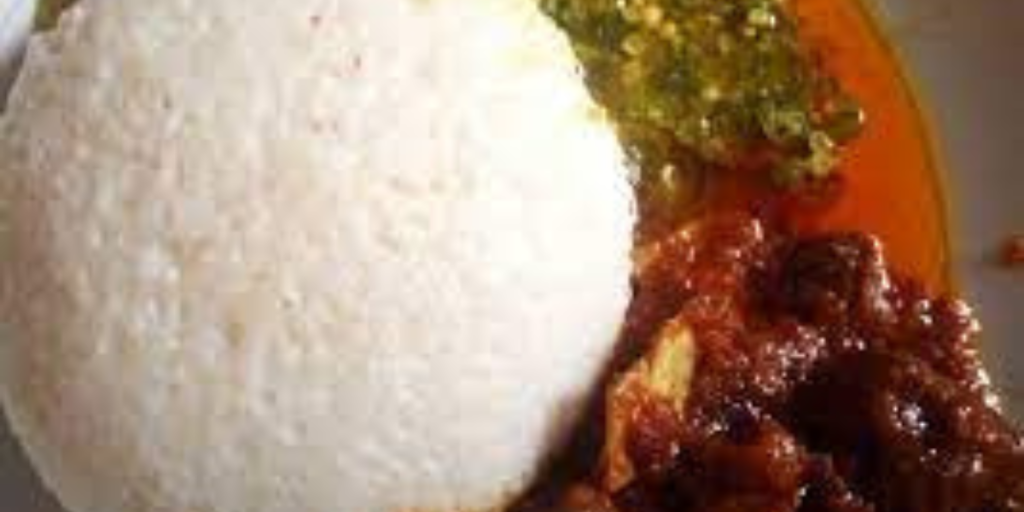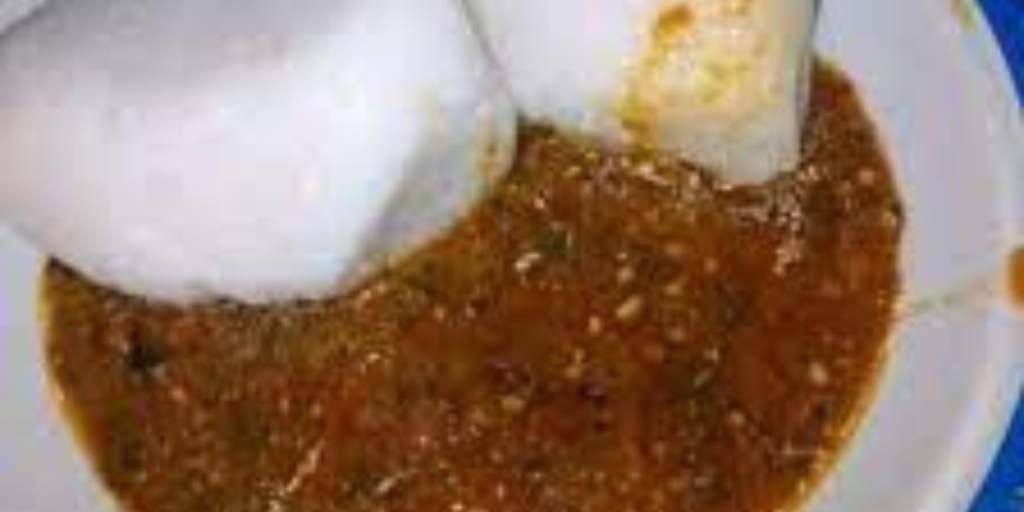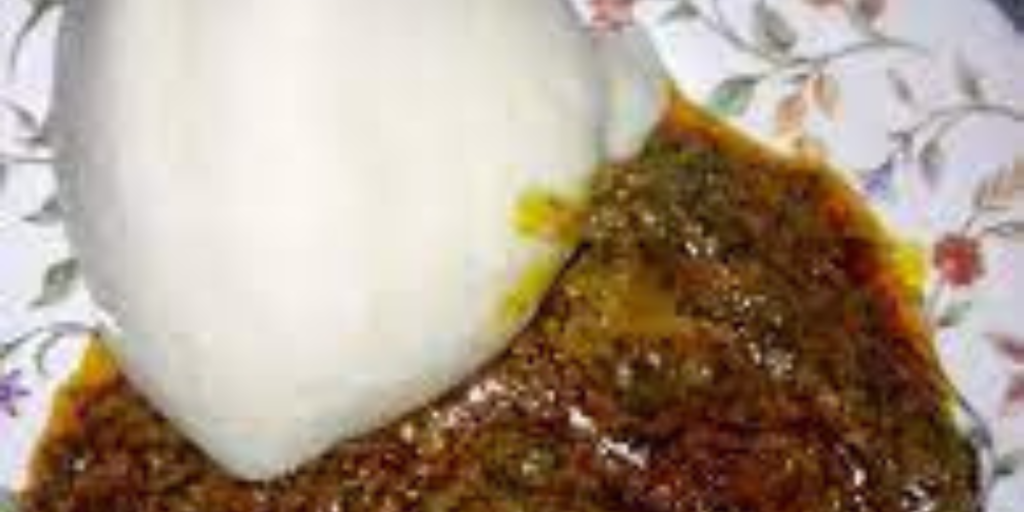Table of Contents

Tuwo Shinkafa, a traditional Nigerian staple, holds a special place in the hearts and diets of many across West Africa. Made from various starchy ingredients such as cornmeal, millet, or rice flour, tuwo shinkafa is a versatile accompaniment to a wide range of savory dishes, particularly soups and stews. Beyond its role as a comforting carbohydrate source, tuwo shinkafa boasts a plethora of health benefits that contribute to overall well-being. In this comprehensive exploration, we delve into the nutritional profile of tuwo and its potential impact on human health, shedding light on why this humble dish deserves a place on your plate.
Tuwo Shinkafa Recipe best Nigerian Recipe Of 2024
Rich in Complex Carbohydrates (Tuwo Shinkafa):

Tuwo serves as an excellent source of complex carbohydrates, providing sustained energy to fuel the body throughout the day. Unlike simple carbohydrates found in processed foods, the complex carbohydrates in tuwo are digested slowly, helping to stabilize blood sugar levels and prevent energy crashes.
This steady release of energy is particularly beneficial for individuals with active lifestyles or those looking to maintain consistent energy levels without the fluctuations associated with refined sugars.
Tuwo Shinkafa and Miyan Kuka naija best 2024 Combo
High in Fiber Content:

Depending on the type of flour used, tuwo can be a significant source of dietary fiber. Fiber plays a crucial role in digestive health, promoting regularity, preventing constipation, and supporting a healthy gut microbiome.
By adding bulk to stool, fiber aids in the removal of waste and toxins from the body, reducing the risk of digestive disorders such as diverticulitis and hemorrhoids. Additionally, a high-fiber diet has been linked to lower cholesterol levels and a reduced risk of heart disease.
What’s the secret to great jollof rice? Best Of 2024
Packed with Essential Vitamins and Minerals:

Tuwo made from whole grain flours, such as millet or cornmeal, is rich in essential vitamins and minerals. These include B vitamins like thiamine, riboflavin, and niacin, which play key roles in energy metabolism and nervous system function.
Additionally, tuwo provides important minerals such as iron, magnesium, and phosphorus, which are essential for maintaining healthy bones, teeth, and red blood cell production. Iron, in particular, is crucial for preventing iron-deficiency anemia, a common nutritional deficiency worldwide.
How to make fufu from Flour Nigerian Best 2024
Gluten-Free Option for Individuals with Sensitivities:

For individuals with gluten sensitivities or celiac disease, tuwo made from gluten-free flours like millet or rice offers a safe and delicious alternative to wheat-based staples. These gluten-free options allow individuals to enjoy the comfort and satisfaction of tuwo without compromising their digestive health.
By expanding the variety of grains in their diet, individuals with gluten sensitivities can access a broader range of nutrients while avoiding the discomfort and potential long-term health consequences associated with gluten consumption.
How To Make Eba With Cold Water. Nigeria Best of 2024
Versatility in Nutritional Adaptability:

One of the defining characteristics of tuwo is its adaptability to various dietary preferences and nutritional needs. Whether served alongside protein-rich soups and stews or paired with vegetable-based dishes, tuwo can be customized to suit a wide range of dietary lifestyles.
How To Make a Good Eba. Nigerian Best 2024
For those following vegetarian or vegan diets, tuwo provides a versatile and satiating base that can be paired with plant-based proteins and nutrient-dense vegetables to create balanced and satisfying meals.
Tuwo, often cherished for its comforting texture and ability to complement a variety of dishes, offers far more than just culinary appeal. With its rich array of complex carbohydrates, fiber, vitamins, and minerals, tuwo emerges as a nutritional powerhouse capable of supporting overall health and well-being. Whether enjoyed as a staple in traditional Nigerian cuisine or incorporated into modern dietary trends, tuwo stands as a testament to the nourishing potential of whole foods. By embracing the health benefits of tuwo and incorporating it into a balanced diet, individuals can savor not only its delicious taste but also the myriad ways it contributes to a healthier lifestyle.
In conclusion, as we delve into the health benefits of Tuwo Shinkafa in 2024, it becomes abundantly clear that this traditional Nigerian dish transcends its culinary delight to offer a plethora of nutritional advantages. From its inherent richness in essential nutrients like carbohydrates, proteins, vitamins, and minerals to its potential in aiding digestion, promoting satiety, and sustaining energy levels, Tuwo Shinkafa emerges not only as a cultural staple but as a cornerstone of optimal health and well-being. Its unique composition, featuring rice flour as the primary ingredient, underscores its gluten-free nature, catering to a diverse array of dietary needs and preferences in an era where food sensitivities and intolerances are increasingly recognized and accommodated.
Furthermore, the amalgamation of Tuwo Shinkafa with various nutrient-dense soups and stews amplifies its nutritional profile, offering a balanced meal replete with antioxidants, fiber, and healthy fats. This synergy not only enhances the sensory experience but also augments the dish’s bioavailability, ensuring maximum absorption of its vital nutrients and fostering holistic nourishment from within. In a contemporary landscape where dietary choices are scrutinized for their impact on long-term health outcomes, Tuwo Shinkafa stands as a beacon of nutritional integrity, embodying the essence of wholesome eating and culinary heritage.
Moreover, the adaptability of Tuwo Shinkafa to modern dietary trends and lifestyles further solidifies its status as a timeless culinary gem. Whether consumed as a hearty breakfast option, a satisfying lunchtime meal, or a comforting dinner indulgence, its versatility transcends temporal boundaries, resonating with individuals across generations and cultural backgrounds. In an age characterized by the relentless pursuit of health and longevity, Tuwo Shinkafa emerges as a steadfast ally, offering sustenance, satisfaction, and sustenance in equal measure.
However, amidst the celebration of Tuwo Shinkafa’s myriad health benefits, it is imperative to acknowledge the importance of moderation and dietary diversity in achieving optimal health outcomes. While this traditional delicacy undoubtedly holds its place in a balanced diet, its consumption should be complemented by a variety of nutrient-rich foods to ensure comprehensive nutritional adequacy. Furthermore, mindful eating practices, coupled with regular physical activity, form the cornerstone of a holistic approach to well-being, augmenting the benefits derived from Tuwo Shinkafa and other dietary staples.
In essence, as we navigate the complex tapestry of modern nutrition, Tuwo Shinkafa serves as a timeless testament to the intrinsic connection between food, culture, and health. Its rich tapestry of flavors, textures, and nutrients encapsulates the essence of culinary excellence, while its profound impact on well-being transcends the boundaries of time and tradition. As we embrace the dawn of a new era, let us cherish the legacy of Tuwo Shinkafa and harness its transformative potential to nurture not only our bodies but also our souls, forging a path towards a healthier, happier future for generations to come.






















